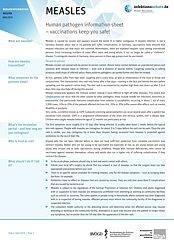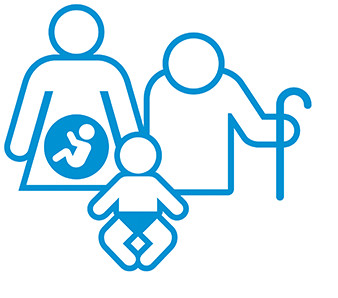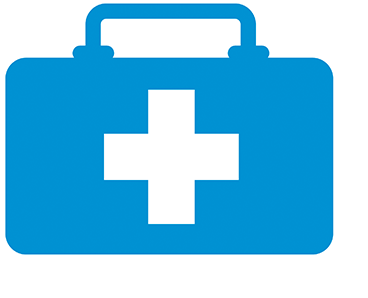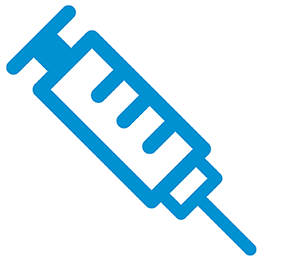Vaccination
The German Permanent Vaccination Commission (STIKO) recommends vaccination against measles: Preferably, it should take place using the MMR combination vaccine that protects from mumps and rubella as well.
- A two-stage vaccination is recommended for children. The first vaccination should take place at the age of 11 to 14 months and the second vaccination no earlier than 4 weeks after the first one and no later than reaching 24 months of age. Only then is an optimum level of protection achieved. A practical approach is to give the first MMR vaccination during the child’s U6 early diagnosis exam. The first MMR vaccination can already be given when the child is aged 9 months if the child is to be admitted to a community facility before it is 11 months old.
- Unvaccinated children and teens should be vaccinated in a two-step procedure as soon as possible.
- It is recommended that adults born after 1970 be vaccinated if they were not vaccinated or vaccinated only once against measles in childhood. This also applies if the vaccination status is unclear. They receive a one-step vaccination.
- A measles vaccination is also recommended for everyone working in healthcare or community facilities born after 1970, such as employees of day nurseries or schools, for example, or staff providing care for people with severely weakened immune systems, if these individuals were not vaccinated or vaccinated only once against measles in childhood, or if their vaccination status is unclear.
Those who had contact with measles patients and are not protected should receive the MMR vaccination as "stop-gap" vaccinations within 3 days if possible. Babies aged 9 months and over can also be vaccinated if they are at risk of infection. In some cases, this can actually prevent the disease from developing or weaken it. For contact persons who cannot be given the MMR vaccine (e.g. babies less than 6 months old or pregnant women), STIKO recommends using the option of antibodies (immunoglobulins) as a temporary prophylactic against infection. Contact persons of measles patients who are not fully vaccinated or have gone through the illness must not attend community facilities according to the German Prevention of Infection Act. Health authorities can, at their discretion, exclude unvaccinated persons from community facilities. Such facilities can be visited only once.
- a complete course of injections is documented on the vaccination record;
- stop-gap vaccination has taken place within 3 days (does not apply to contact persons who are living together with patients suffering from measles);
- protection from measles has been confirmed by laboratory testing.





